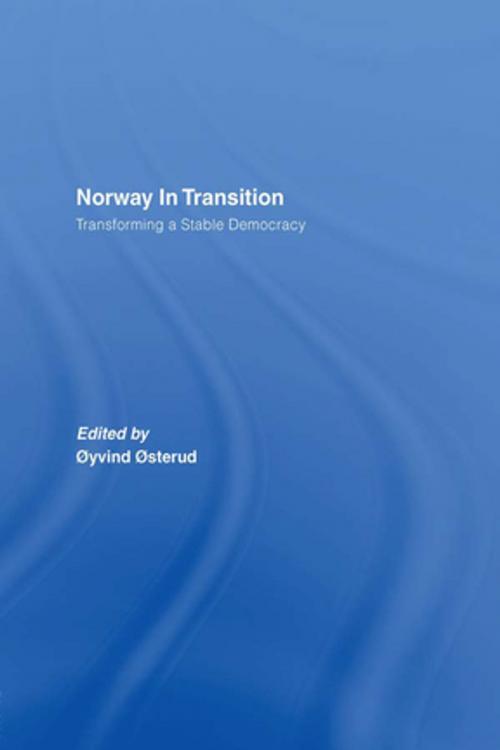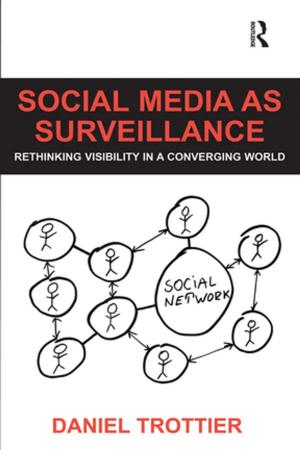Norway in Transition
Transforming a Stable Democracy
Nonfiction, Social & Cultural Studies, Political Science| Author: | ISBN: | 9781317970361 | |
| Publisher: | Taylor and Francis | Publication: | October 18, 2013 |
| Imprint: | Routledge | Language: | English |
| Author: | |
| ISBN: | 9781317970361 |
| Publisher: | Taylor and Francis |
| Publication: | October 18, 2013 |
| Imprint: | Routledge |
| Language: | English |
The transformation of Norway is a magnifying glass to processes of political change in European countries generally. In this book, a group of Norway`s most prominent political scientists closely analyzes the forces of change - ranging from the political apparatus, the mode of partisan mobilization, and the development of political trust to the new gender relations and the strains on the established elite consensus.
This volume shows how Norway is an embodiment of the Nordic Model. Norwegian society and politics have attracted wide-spread interest for three interrelated reasons – a strikingly egalitarian and cooperative model for public-private relations, a stable and rich country on the outside of the European Union, and a notable engagement in moral policy areas globally. Now the model is in flux for domestic as well as external reasons. Rule by popular consent is in question, with a more fragile chain of governance and a slow erosion of mass parties. The model is transformed from below, through the changing democratic infrastructure, as well as from above, with privatization and market reform in the public sector. The focus is Norway, but the book is a comparative analysis of a paradigm case with relevance far beyond its own borders.
This book was previously published as a special issue of the leading journal West European Politics.
The transformation of Norway is a magnifying glass to processes of political change in European countries generally. In this book, a group of Norway`s most prominent political scientists closely analyzes the forces of change - ranging from the political apparatus, the mode of partisan mobilization, and the development of political trust to the new gender relations and the strains on the established elite consensus.
This volume shows how Norway is an embodiment of the Nordic Model. Norwegian society and politics have attracted wide-spread interest for three interrelated reasons – a strikingly egalitarian and cooperative model for public-private relations, a stable and rich country on the outside of the European Union, and a notable engagement in moral policy areas globally. Now the model is in flux for domestic as well as external reasons. Rule by popular consent is in question, with a more fragile chain of governance and a slow erosion of mass parties. The model is transformed from below, through the changing democratic infrastructure, as well as from above, with privatization and market reform in the public sector. The focus is Norway, but the book is a comparative analysis of a paradigm case with relevance far beyond its own borders.
This book was previously published as a special issue of the leading journal West European Politics.















